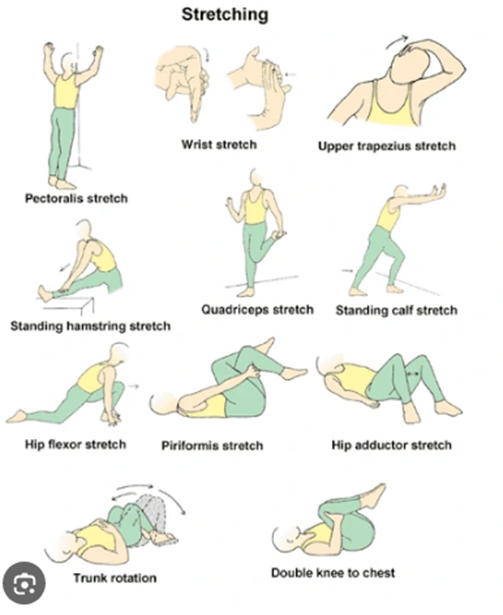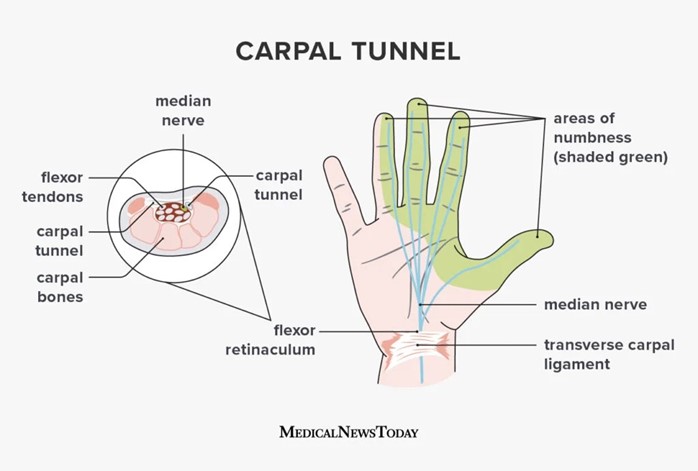The nurse is creating an education plan for a client who has a recent diagnosis of Multiple Sclerosis (MS). Which of the following interventions should the nurse include in the client's plan?
Provide total assistance with all ADLs
Order a low-residue diet
Encourage client to void every hour
Instruct the client on daily muscle stretching
The Correct Answer is D
Choice A reason: Providing total assistance with all ADLs is not an intervention that should be included in the client's plan. ADLs are activities of daily living, such as bathing, dressing, eating, and toileting. Providing total assistance with all ADLs can reduce the client's independence and self-esteem, and increase their dependence and learned helplessness. The nurse should encourage and assist the client to perform as much as they can by themselves and provide partial or intermittent assistance only when needed.
Choice B reason: Ordering a low-residue diet is not an intervention that should be included in the client's plan. A low-residue diet is a type of diet that limits foods that are high in fiber or indigestible material, such as whole grains, nuts, seeds, fruits, and vegetables. A low-residue diet may be recommended for clients who have inflammatory bowel disease (IBD), diverticulitis, or bowel obstruction, as it can reduce bowel frequency and irritation. However, it is not indicated for clients who have MS, unless they have other comorbidities that require it. A balanced diet that includes adequate fiber, fluids, and nutrients is more beneficial for clients who have MS.
Choice C reason: Encouraging the client to void every hour is not an intervention that should be included in the client's plan. Voiding every hour can be inconvenient and impractical for the client, and may not address their bladder problems effectively. MS can cause bladder dysfunction, such as urinary urgency, frequency, incontinence, or retention, due to nerve damage that affects bladder control. The nurse should assess the type and severity of the bladder dysfunction, and provide appropriate interventions, such as medication, catheterization, pelvic floor exercises, or bladder training.
Choice D reason: Instructing the client on daily muscle stretching is an intervention that should be included in the client's plan. Muscle stretching is a type of exercise that involves extending or elongating a muscle or group of muscles to their full length. Muscle stretching can help prevent or relieve muscle spasticity, stiffness, pain, or contractures that may occur in clients who have MS. The nurse should teach the client how to perform muscle stretching safely and correctly, and encourage them to do it daily or as prescribed.

Nursing Test Bank
Naxlex Comprehensive Predictor Exams
Related Questions
Correct Answer is B
Explanation
Choice A: Collaborate with a physical therapist to develop programs for injured employees to return to work. This is incorrect because this is a tertiary prevention strategy, not a secondary prevention strategy. Tertiary prevention aims to restore function and prevent disability or complications after an injury or illness has occurred.
Choice B: Help plant workers identify signs of carpal tunnel syndrome. This is correct because this is a secondary prevention strategy. Secondary prevention aims to detect and treat health problems early before they become more serious or chronic. Carpal tunnel syndrome is a common occupational health problem that can cause pain, numbness, and weakness in the hand and wrist. Early identification and treatment can prevent permanent nerve damage and disability.
Choice C: Organize an influenza immunization campaign. This is incorrect because this is a primary prevention strategy, not a secondary prevention strategy. Primary prevention aims to prevent disease or injury from occurring in the first place, by reducing exposure or risk factors. Influenza immunization can protect plant workers from getting infected by the flu virus and reduce the spread of the disease.
Choice D: Teach plant workers about proper lifting techniques. This is incorrect because this is also a primary prevention strategy, not a secondary prevention strategy. Proper lifting techniques can prevent musculoskeletal injuries such as sprains, strains, and herniated discs, by avoiding excessive stress on the spine and joints.

Correct Answer is A
Explanation
Choice A reason: It is a tool that is used to determine your maximum level of self-sufficiency as the appropriate nursing response, as it accurately describes the purpose and function of the FIM. The FIM measures how much assistance you need to perform 18 activities of daily living, such as eating, dressing, toileting, walking, and communicating. The FIM helps to evaluate your functional status, monitor your progress, and plan your rehabilitation goals and interventions. ¹²³
Choice B reason: It is a test that determines which activities you feel most comfortable performing is not an appropriate nursing response, as it does not reflect the objective and standardized nature of the FIM. The FIM is not a subjective or self-reported measure of your preferences or comfort level, but rather an observational and rating scale that assesses your actual performance and independence in various tasks. The FIM uses a 7-point ordinal scale that ranges from 1 (total assistance) to 7 (complete independence) and requires trained and certified raters to administer and score it. ¹²³
Choice C reason: It is a tool used by insurance companies to determine qualifications for medical reimbursement is not an appropriate nursing response, as it does not capture the primary purpose and benefit of the FIM. The FIM is not a financial or administrative tool that determines your eligibility or coverage for medical services, but rather a clinical and research tool that measures your functional outcomes and quality of care. The FIM provides a uniform system of measurement for disability based on the International Classification of Impairment, Disabilities, and Handicaps and allows for comparison and evaluation of different rehabilitation programs and settings. ¹²³
Choice D reason: It is a tool that is used to assess what services you will need a home health aide to perform for you is not an appropriate nursing response, as it does not reflect the comprehensive and multidimensional scope of the FIM. The FIM is not a specific or limited tool that assesses only your home care needs or dependence on others, but rather a general and broad tool that assesses your functional abilities and disabilities in various domains and environments. The FIM covers both motor and cognitive aspects of functioning, such as comprehension, expression, social interaction, problem-solving, and memory. The FIM can be used with all diagnoses within rehabilitation and can be applied across different levels and settings of care.
Whether you are a student looking to ace your exams or a practicing nurse seeking to enhance your expertise , our nursing education contents will empower you with the confidence and competence to make a difference in the lives of patients and become a respected leader in the healthcare field.
Visit Naxlex, invest in your future and unlock endless possibilities with our unparalleled nursing education contents today
Report Wrong Answer on the Current Question
Do you disagree with the answer? If yes, what is your expected answer? Explain.
Kindly be descriptive with the issue you are facing.
